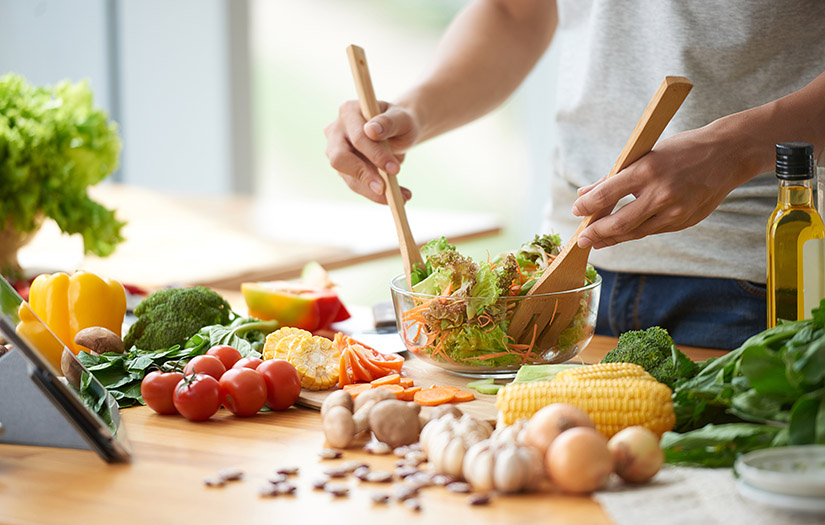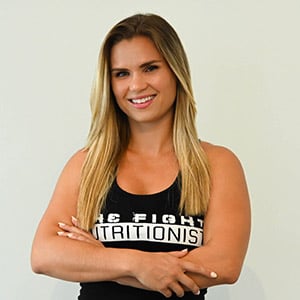When it comes to weight loss, or teaching clients how to calculate calories, the formula is quite simple. You must burn more calories in a day than you consume. This would put you in a calorie deficit. To lose 1lb per week, it is suggested to consume 500 calories less per day. However, when you take a closer look and think about this formula, it seems much more complex. What foods should you be eating exactly? Are certain foods better for weight loss than others? Is there such a thing as fat-burning foods?
The answer to those questions is yes! And we will soon discuss what foods are best to consume to shed fat and burn calories.
But first, we need to address several key points that any weight loss expert will tell you.
Important Points About Losing Weight
• When decreasing caloric intake, it’ll be natural to experience hunger pains. To prevent this from happening, it’s important to focus on consuming energy-dense foods such as proteins, healthy fats, vegetables, and whole grains!
• Consuming fiber-rich meals (I.e meals with many vegetables) will help keep you full for a low-calorie cost.
• A high protein diet is key to fat loss. Protein helps keep you full, helps build and preserve muscle tissues, and has a large thermogenic effect. This means it takes a great deal of energy to digest protein (I.e you burn calories eating protein!)
• Avoid simple sugars and processed foods. Simple sugars like juices, sodas, chips, and candies can easily add extra calories to your daily intake.
They are also digested and absorbed in your stomach very easily - meaning they will not keep you full. Processed foods also lack many essential vitamins and minerals that help contribute to appetite control and energy levels.
The 15 best nutrient-dense foods to pack your plate with
1. Salmon: Salmon is packed with protein, 3oz has 17g protein and is only 177 calories. Salmon is also a rich source of omega 3’s, which helps decrease inflammation in the body. It is also high in many B vitamins, Vitamin D, and Vitamin E.
2. Bison: Bison is also very high in protein and packed with omega 3 fatty acids. Compared to beef, bison is also leaner and contains more iron. 3oz only has 124 calories!
3. Eggs: Eggs are considered the highest quality of all the proteins! 2 eggs contain about 150 calories and 12g of protein. They are rich in vitamins A, D, E, B2, B12, and B5.
4. Edamame: Edamame is top on our list for legumes. 1 cup contains 17g protein and 8g fiber!
5. Quinoa: Quinoa is a high-quality grain rich in magnesium, calcium, potassium, B-vitamins, Vitamin E, and iron. It is also high in protein. 1 cup contains 8 grams of protein and 5 grams of fiber.
6. Beets: Beets are full of antioxidants! This vegetable is packed with vitamin C, iron, and potassium. 1 cup is only 60 calories.
7. Broccoli: Broccoli is full of fiber, packed with nutrients, and is low in calories. 1 cup contains 31 calories and 2.3 grams of fiber.
8. Artichoke: Artichokes are one of the most fibrous vegetables! 1 medium artichoke contains 7 grams of fiber. They are also packed with vitamin C, K, folate, phosphorous, and magnesium.
9. Kale: Kale is packed with nutrients! It contains high amounts of vitamins A, K, C, and B6. 1 cup only contains 33 calories and 2.6 grams of fiber.
10. Berries: Berries are packed with antioxidants. 1 cup of berries contains 85 calories!
11. Sweet Potato: Sweet potato is loaded with Vitamin A and fiber! 1 medium sweet potato contains 4g fiber and 114 calories.
12. Pomegranate: Another antioxidant-rich fruit! Pomegranates are loaded with Vitamin C. 1/2 cup of pomegranate seeds is only 72 calories.
13. Avocados: Avocados are a very rich source of monounsaturated fatty acids, folate, and vitamins C, E, K, and B6. They are also rich in fiber! One avocado contains 10 grams.
14. Brussels Sprouts: Brussels sprouts are a rich source of vitamin K. 1 cup only contains 38 calories
15. Green Beans: One cup of green beans only contains 31 calories. They are also rich in fiber and vitamin K.
So now that we have an extensive list of some nutrient-dense foods - what would consuming these foods in a day look like?
Sample Meal Plan for Weight Loss Foods
Let’s build a sample meal plan using these various proteins, grains, vegetables, fruits, and healthy fats to show how easy it is to shed calories while still eating a good amount of food!
• Breakfast: 2 eggs, 1/2 avocado, 1 cup berries (364 calories)
• AM Snack: 1 cup pomegranate seeds (144 calories)
• Lunch: (Kale Salad) 2 cups kale, 3oz salmon, 1/2 cup quinoa, 1/2 cup beets, 1/2 cup broccoli w. balsamic vinegar (604 calories)
• PM Snack: 1 cup salted edamame (200 calories)
• Dinner: 3oz bison, 1 medium sweet potato w. 1 pat butter, 1 medium artichoke, 1/2 cup green beans (347 calories)
Total calories = 1659
As you can see, this is still a lot of food for very few calories. Now many of you will need more than this in a day, but this sample demonstrates how much food you can easily consume without increasing caloric intake extensively.
To lose weight, you must burn more calories in a day than you eat. Consumption of nutrient-dense foods rich in protein, fiber, and essential vitamins and minerals will all help achieve this goal.
No food is superior in “burning fat”, but consumption of a well-balanced healthy diet will prevent any nutrient and energy deficiencies and make it easier to shed unwanted pounds. Lastly, you must choose foods you enjoy eating. You’ll never commit to a meal plan long-term if the foods on your menu don’t satisfy your taste buds.
Relevant Resources on Weight Loss Foods
If this blog interested you, check out the following articles to explore other facets of food and weight loss:

















